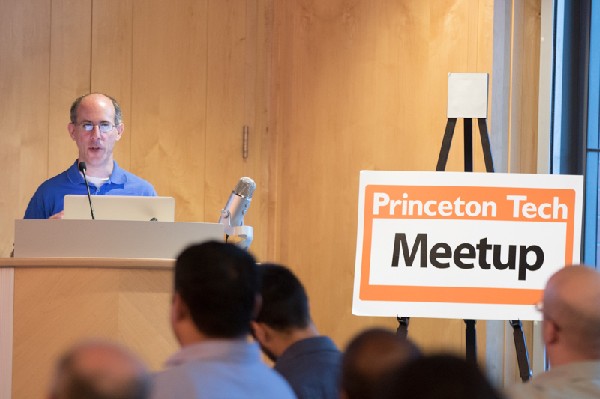Interview: Evan Koblentz Discusses His Book on The History of Portable Computing

Computer historian Evan Koblentz attended the Princeton Tech Meetup event on May 13, where he spoke about his book, “Abacus to smartphone: The evolution of mobile and portable computers.” We covered that event here.
On his website, Koblentz says, “This is a short book about a big story. Mobile or portable computing feels like a recent phenomenon, but its story began long before the iPhone and laptop.
“There were ‘luggable’ computers before Apple existed, mainframes in Army trucks during the 1950s, and let’s not forget the classic slide rule! While we’re at it, consider pocket calculators, the abacus, early computers aboard ships and on airplanes, and many others. Each type of portable computing has a unique and largely untold story of how it came to be.”
We asked Koblentz for a short interview about him and his book. This is the result:
NJTW: What is your background? What made you the person to write this book?
EK: I spent the past 17 years writing for computer magazines, and witnessed the mobile revolution up close. I’m also a computer historian: I lead the computer history wing of the Information Age Science Center (Wall). I’m cofounder and president of a nonprofit organization called “MARCH” (Mid-Atlantic Retro Computing Hobbyists), and I’m frequently quoted on computer history topics in the mainstream media (BBC, CNN, Fox Business, NPR, Philadelphia Inquirer, Wall Street Journal, etc.).
NJTW: Where do you live in New Jersey? Did you go to college here? If so where?
EK: I live in Springfield. I was raised in Edison and went to Kean University, in Union.
NJTW: Tell us more about your work on the history of computing.
EK: In addition to my work described above, I participate in conferences and journals produced by the Society for the History of Technology. Earlier this year, I published a booklet about the historic companies and inventions from the computer industry here in New Jersey.
EK: Nobody’s written a book solely about the history of mobile or portable computing. About two-thirds of the stories in the book have never been published. The vast majority of the information is from primary sources, such as my interviews with engineers who built pioneering systems, government research documents, etc.
NJTW: Who should read the book? And why?
EK: “Abacus to smartphone” is for anyone interested in the history of technology. It is written in a nontechnical style, yet it’s deeply footnoted for those who wish to learn more.
NJTW: Is there anything else that people should know about this book?
EK: I began the project 12 years ago while doodling on a PalmPilot one day. It made me wonder where personal digital assistants (PDAs) came from. … I realized that “mobile” computing starts with the abacus, and goes into the slide rule. Along the way, there were Army mainframes inside tractor-trailers during World War II, computers the size of suitcases in the 1970s, and even a smartphone as early as 1992. PalmPilots and related “PDAs” are just one small part of the story.
NJTW: How can people buy the book?
EK: The best place to buy it is through my website, www.abacustosmartphone.com.

